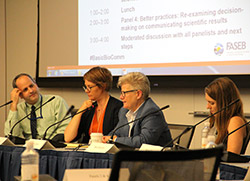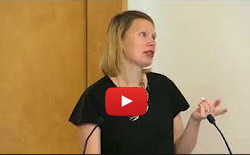Archived: Webinar for Postdoctoral Research Associate Training (PRAT) Program Applicants
May 22, 2018
Continue Reading
Archived: Early-Career Speaker Describes Genomic Antics of Ancient Vertebrate, Answers Questions from Undergrads
May 2, 2018
Continue Reading
Archived: Webinar for NRMN Coordination Center and NRMN Resource Center Applicants
April 9, 2018
Continue Reading
Archived: Webinar for NRMN: The Science of Mentoring, Networking, and Navigating Career Transition Points Grant Applicants
April 5, 2018
Continue Reading
Archived: Webinar on NIGMS Institutional Predoctoral Training Grant Program in Basic Biomedical Sciences
February 26, 2018
Continue Reading
Archived: Webinar for RISE Program Applicants
January 25, 2018
Continue Reading
Archived: Webinar for Regional Technology Transfer Accelerator Hubs for IDeA States FOA
November 3, 2017
Continue Reading


